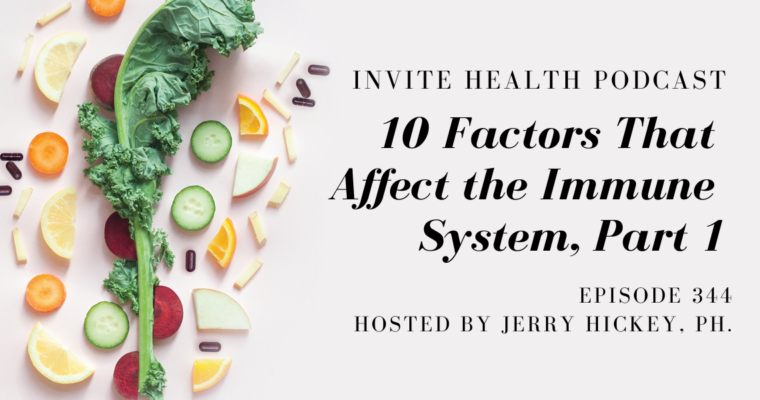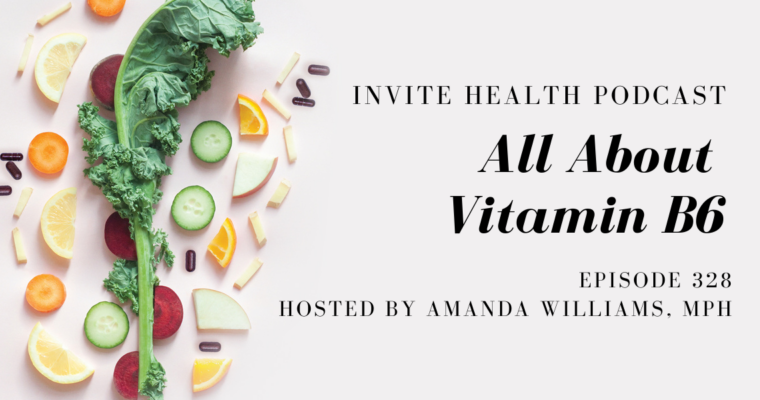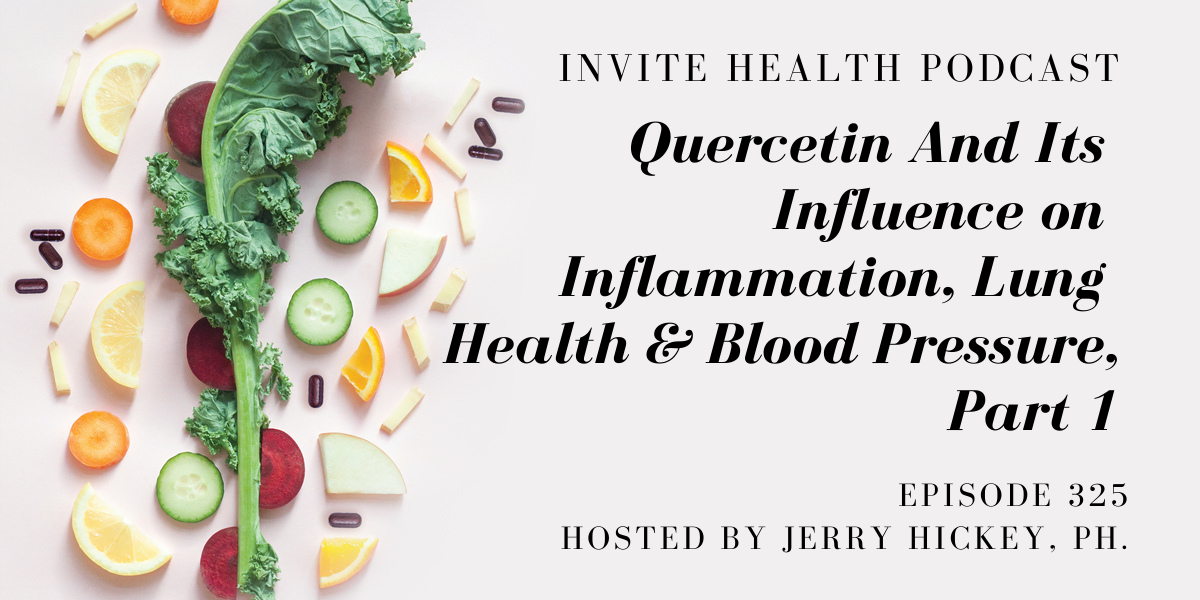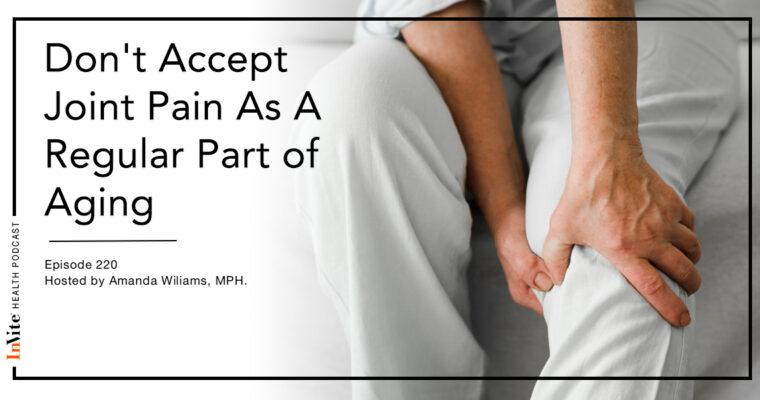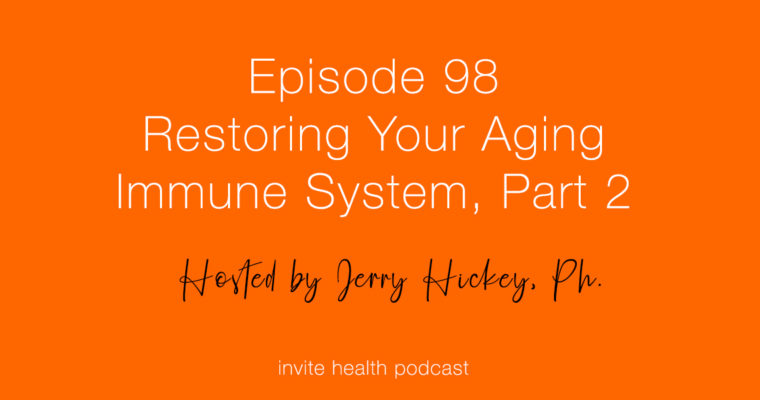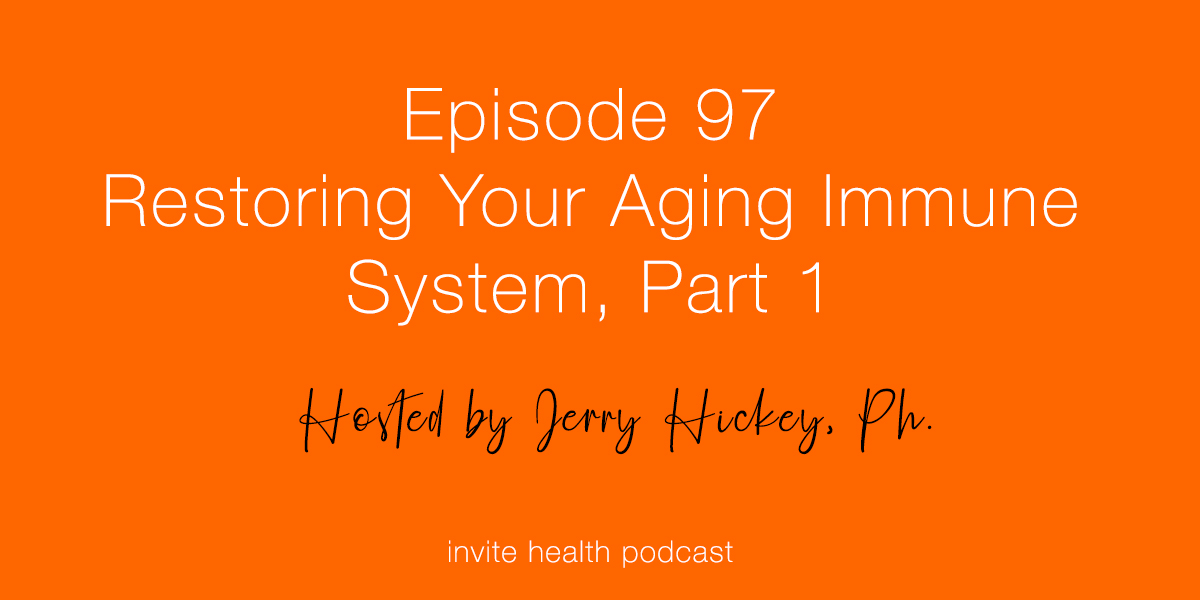quercetin
Invite Health Podcast, Episode hosted by Jerry Hickey. Ph
Subscribe Today!
A recent report came out called “Why you should pay attention to inflammation.” They’re saying that “inflammation is a complex reaction triggered by your immune system when it fights invaders,” so we’re talking about viruses, bacteria and yeast infections. They go on to say that when inflammation is responding to an injury or an infection, it’s called acute inflammation. That means sudden, rapid onset. The immune system releases chemicals which cause your blood vessels to expand near your injury. This allows more blood to reach the injured tissue and then chemicals are released at the injured point to attract immune system cells, where they help fight infections and help with the healing process.†
When people get an infection that attacks the lungs, the infection itself inflames the lungs. Then there’s a counterstrike by the immune system to save the patient. What can happen, especially if you’re low in Vitamin D, you get this massive assault, triggered by a chemical messenger in the immune system called interleukin-6, and you can have acute respiratory distress syndrome, where the lining of the lungs literally floods with fluids. When this happens, it becomes hard to breathe and you can wind up in the intensive care unit. This can happen if things are out of control. That’s acute inflammation.†
How Different Types of Inflammation Impact Your Body – InVite Health Podcast, Episode 314. Listen Now >>
When inflammation keeps simmering along at a low level, that’s called chronic inflammation. A lot of things can trigger that, including drinking a lot of alcohol, obesity, diabetes, chronic stress, cigarettes, pollution and more. It’s low-grade, so we’re not talking about feeling any pain or anything. You don’t even notice you have it. You’d have to have a blood test to see that you have it. This chronic inflammation has been linked to nasty things, such as the onset of Alzheimer’s disease, Parkinson’s disease, different cancers, different forms of arthritis, diabetes, heart disease and more. They’re all connected to this low-grade systemic inflammation.†
Learn more about inflammation by tuning into the full podcast episode.

The powerful benefits of Quercetin
There are constituents in food that can reduce inflammation. One such constituent is quercetin. Quercetin is a flavonol. It is found in small quantities in exceptionally healthy foods like apples, onions, shallots, scallions, green tea, berries, broccoli, kale, cherry tomatoes and citrus fruits.†
Research shows that eating these foods that are rich in quercetin helps lower systemic, low-grade, chronic inflammation, the kind that’s really bad for the brain, heart, circulatory system and immune system. But even with a good diet, the average intake of quercetin, according to research, is anywhere from 25 to 30mg.†
A recent systematic review and meta-analysis of human clinical trials in the European Journal of Clinical Nutrition looked at seven randomized controlled human clinical trials that showed that using 500mg or more of quercetin could significantly reduce persistent, chronic, low-grade systemic inflammation. At doses of 500mg or more with a supplement, it lowers the c-reactive protein level.†
When you eat quercetin-rich foods, there is an interplay of other good ingredients. Focusing on enough of these foods is very important, so if you eat a lot of these foods, for many people, it could lower inflammation, but not for all people. Sometimes, you need more quercetin. It depends on your immune system and how you release cytokines. It’s a little bit individualistic. In general, a great diet helps lower inflammation, but there are certain conditions where you need more.†
For more information on the power of quercetin, listen to the full podcast episode and tune in for part 2, coming tomorrow!
Thank you for tuning in to the Invite Health Podcast. You can find all of our episodes for free wherever you listen to podcasts or by visiting www.invitehealth.com/podcast. Make sure you subscribe and leave us a review! Follow us on Facebook, Twitter and Instagram at Invite Health today. We’ll see you next time on another episode of the Invite Health Podcast.


